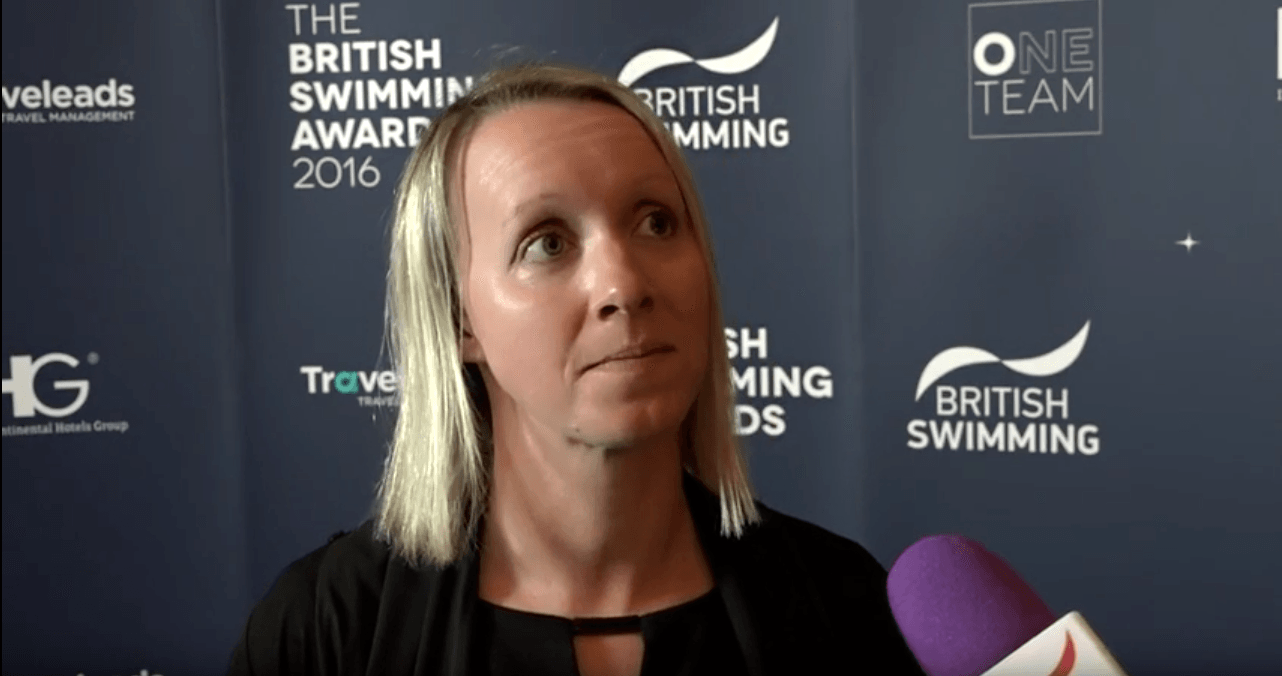The British Swimming federation has announced a new structure for its National Centres and the coaches leading them. Most notably, highly-decorated coach Melanie Marshall, who coached world record-shattering breaststroker Adam Peaty, will take over the Loughborough National Centre.
Marshall was one of two major British coaches reported to change locales this season. Jon Rudd recently left Plymouth College to become the new High Performance Director for Irish Swimming.
Marshall will now become the National Lead Centre Coach at Loughborough, with David Hemmings serving as National Centre Coach there. Meanwhile at the Bath National Centre, David McNulty is the new National Lead Centre Coach with Jol Finck as National Centre Coach.
British Swimming’s National Performance Director Chris Spice announced the new structure in a press release this week. He says the new structure is designed to best serve the country heading into the 2020 Olympics. The press release also indicates that the new structure is “part of a long-term strategy which began in 2014 when the National Centres were launched around a philosophy of service to all programme athletes.
The full British Swimming release is below:
British Swimming has announced changes to the format and structure of its National Centres based in Bath and Loughborough.
David McNulty is appointed National Lead Coach in Bath while Mel Marshall is appointed National Lead Coach in Loughborough. And they will be supported by Jol Finck as National Coach in Bath and Dave Hemmings as National Coach in Loughborough.
Each National Lead Coach will coach and monitor their own group as well as take a leadership role for the Centre and for wider World Class Swimming Programme activity while National Coach appointments will run their own groups.
British Swimming National Performance Director Chris Spice is looking forward to working with the new team structure as the sport strives for continual performance improvement.
“I welcome these critical appointments to the future of the sport and am delighted that we have been able to retain and attract such a high-level of world class coaches in our programme,” said Chris Spice. “These four key coaching roles have a major part to play in the overall programme as we work towards the Tokyo 2020 Olympics.
“In the coaching appointments we have a great mix of coaches that are proven at the very highest standard with champions and medallists at Olympic, World, European and Commonwealth level, and those on an upward trajectory. We believe they are ideally suited to lead our National Centres as performance hubs.
“Their appointments complete a strategy stretching back nearly three years and is designed to ensure we chase those constant improvements and marginal gains that become determining factors in our pursuit for success on the international stage.”
All coaching appointments will report to and work closely with British Swimming Head Coach Bill Furniss.
The restructure is part of a long-term strategy which began in 2014 when the National Centres were launched around a philosophy of service to all programme athletes.
At the time of launch it was agreed that the National Centre structure and staffing would remain the same, to minimise any potential disruption to athletes, before a review of coaching and sports science and sports medicine services took place post Rio 2016.
From January 1st 2017 the National Centres will expand their operations from their current focus on resident athlete groups to become true performance hubs for programme-wide activity involving all national programme athletes both inside and outside of the centres.
As a result British Swimming coaching and sport science and sport medicine (SSSM) roles based at the National Centres have been changed to reflect the new direction in the Tokyo 2020 cycle.
“The role of the centres will shift to service the needs of the wider programme, from the start of next year, and this review and restructure will enable us to meet these performance needs,” explained Spice.
“The changes and appointments made will enable coaches to spend more time coaching athletes while sport science staff will offer greater support to a wider network of programme swimmers.”
The National Centres, as “performance hubs”, will host national programme events such as national team development and technical-based camp activity, Head2Head camps, coach development and will be world-leading centres for swimming sport science and sport medicine.
All sport science and sport medicine support staff (SSSM) located at the centres will have a national role rather than be responsible solely for athletes based at the centres and designated area Leads will ensure a more focused provision across the UK. It is envisaged staff will travel to service key programme athletes within the UK.
“This summer British Swimming achieved a best Olympic performance since 1908 but we shouldn’t be satisfied with that,” said Spice. “We can’t stand still, we must move forward and we believe this new structure gives us the best platform for this.
“We have made significant performance gains over the past four years but Tokyo will be an even greater challenge. These National Centres, plus those that we invest in partnership with Scottish Swimming and Swim Wales, will now be at the very heart of the World Class Swimming Programme as we work towards 2020.”
British Swimming Coaching Appointments
David McNulty – National Lead Centre Coach, Bath
Jol Finck – National Centre Coach, Bath
Melanie Marshall – National Lead Centre Coach, Loughborough
David Hemmings – National Centre Coach, Loughborough

Interesting…
Looks like if a good swimmer gets you a job in GB!
You mean Mel being a good swimmer( 1.57 200m ) or Mel having a good swimmer ( Peatty) .?